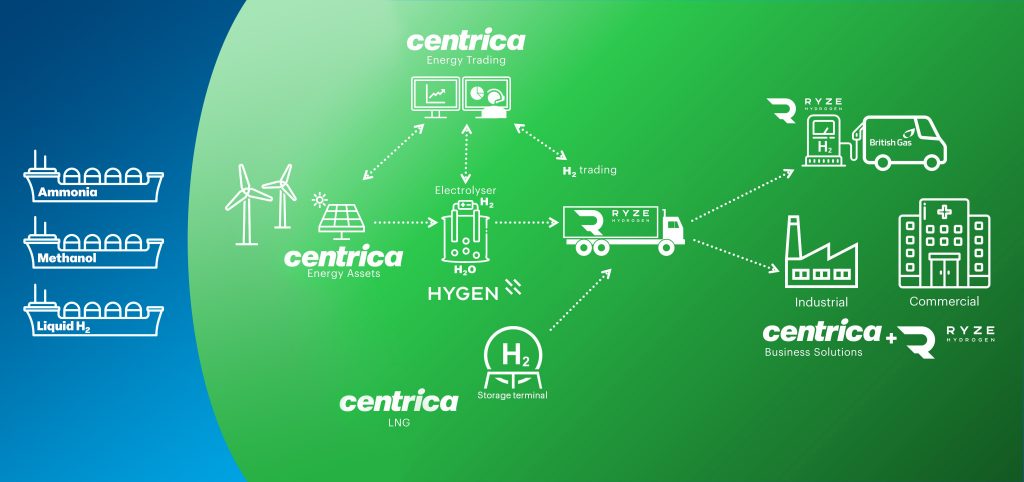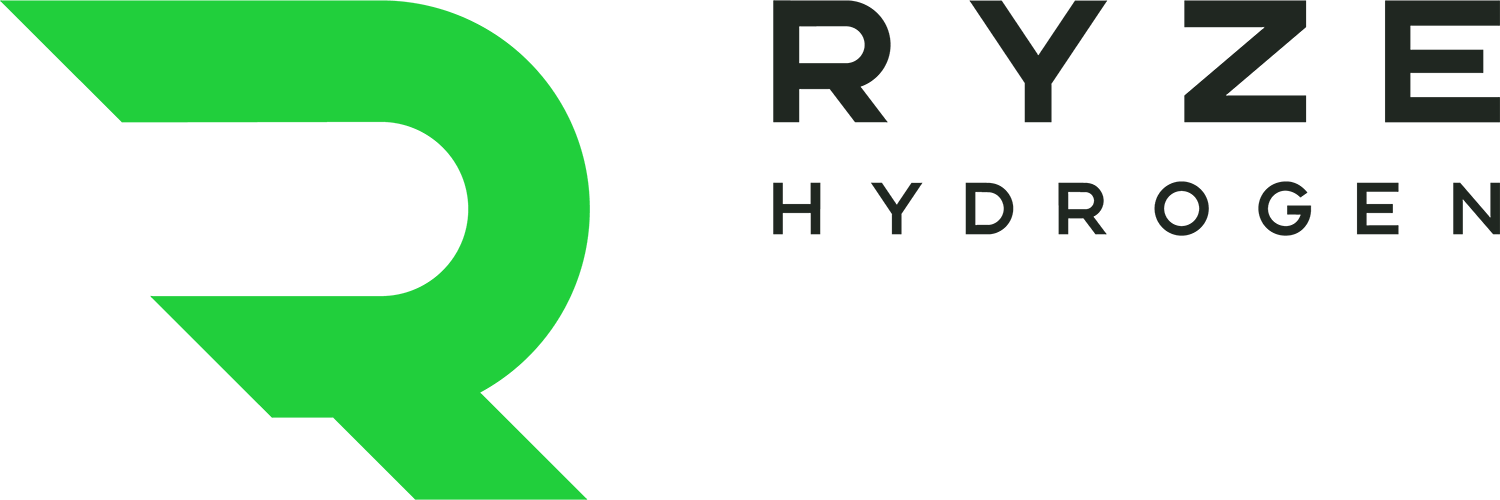2022 was a momentous year for clean hydrogen, both in the UK and around the world.
Here at Ryze, we announced a plan to build an ambitious low-carbon hydrogen production and dispensing facility in Bradford with Northern Gas Networks and Hygen Energy Holdings followed by a partnership with Centrica to build a network of hydrogen production facilities throughout the UK to supply industry and transport.
More than half a dozen projects to build hydrogen hubs across the UK were announced in 2022, including the Port of Shoreham in West Sussex, Portsmouth International Port, and Hydrogen East, based around Bacton on the Norfolk coast.
Wrightbus fuel-cell buses have completed 1.5 million miles since entering service, preventing 2,366 tonnes of planet-warming carbon dioxide being released into the atmosphere. Just this month, JCB showed that it ‘s possible to run, not just plant machinery but trucks with hydrogen combustion engines.

Ryze Hydrogen have announced a partnership with Centrica to build a network of hydrogen production facilities throughout the UK to supply industry and transport.
On the policy front, the UK introduced the world’s first subsidy scheme for clean hydrogen production with the opening on 20 July of applications for the Hydrogen Business Model and the £240 million Net Zero Hydrogen Fund.
However, this momentum must not be lost. In August, the U.S. signed the Inflation Reduction Act into law, offering subsidies of as much as $3 per kg for clean hydrogen, while the EU announced the creation of the €3 billion hydrogen bank to guarantee hydrogen demand.
There is a global competition to attract hydrogen investment and the UK must respond to these initiatives to retain its leadership position.
“Clear practical support will reduce costs, maximise learning, and increase industry and investor confidence,” the UK Hydrogen and Fuel Cell Association said this week. “Done properly it will also support diversity of energy supply and consumer choice. This may in some cases mean favouring hydrogen over alternatives that currently have lower costs, for example in zero emission buses, or refuse vehicles.”

Wrightbus hydrogen fuel-cell buses have completed 1.5 million miles since entering service, preventing 2,366 tonnes of planet-warming carbon dioxide being released into the atmosphere.
Recommendations from the UKHFCA include: setting targets for zero-emission vehicles, including hydrogen; mandating hydrogen readiness in industry, power, and heat; increasing and expanding full value chain trials; supporting a broad range of hydrogen technology solutions; and a review of tax treatment of hydrogen.
We wholeheartedly agree with all of the above while also calling on the nation’s entrepreneurs, engineers and business leaders to put their weight behind the hydrogen revolution.
It remains the only way to decarbonise many industries from steel to agriculture and manufacturing, and should be a significant part of the mix in transport, heating and energy.
With the right mix of policy and industriousness, the UK can be a leader in the hydrogen economy. The opportunity is there; let’s make it happen in 2023.
To learn more about Ryze Hydrogen click here.






